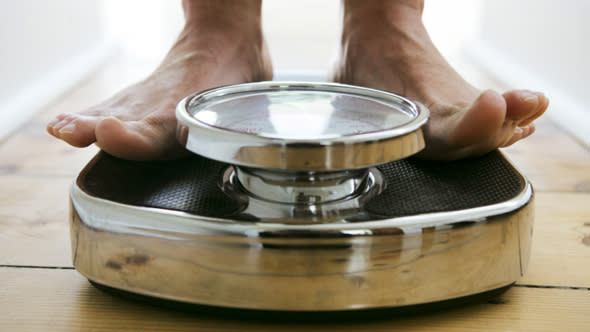The Paleo diet - is it for you?

Pic: Getty
In days gone by, the cabbage soup diet was all the rage, and countless so-called 'fads' have come and gone since. The latest slimming plan that claims to shift excess pounds in a flash is the Paleo diet, but what is it, and could it work for you?
Related Searches
What is the Paleo diet?
Simply put, the Paleo diet, short for 'paleolithic', is based on the diet our one-time ancestors would have survived in. It is also known as the caveman diet, and is based on the idea that you eat foods that would have been available to our hunter-gatherer forebears. That means meat, fish, fruit, vegetables (bar potatoes), nuts and berries all form part of your daily diet, but grains, pulses, dairy and sugar are strictly off limits. However, red meat, game and poultry should form no more than 25 per cent of the diet.
How does it work?
Advocates of the Paleo diet claim that our bodies are naturally able to survive and thrive on the hunter-gatherer diet, while the banned foods such as grains, dairy and sugar, can cause allergies, intolerances, and are often not well digested. The weight loss theory is that because the sugar and carbs are gone, so too are the spikes in insulin levels that cause our cravings for unhealthy snacks. Plus the meat and fish alongside your fresh fruits and veggies will help to keep you feeling full.
Various studies into the effects of the diet have been carried out, with many showing a good degree of weight loss and decreased waist circumference, as well as improved blood pressure and cholesterol levels.
Fans of caveman eating claim not only to have lost weight, but that their energy levels are increased, mood is boosted, skin is clearer, and various ailments are gone, all within weeks of starting the diet. And though it can reportedly feel restrictive to begin with, improvements in energy levels and general wellbeing make it easier to stick with the eating plan without feeling as though you're 'dieting' as such, making long-term weight loss more likely.
According to Loren Cordain, who first published The Paleo Diet in 2001, this style of eating is far from just a quick fix slimming plan. He explained: "The paleo diet is by no means a temporary diet. It's meant to be a lifestyle, just as it was thousands of years ago. You don't just stop it if and when you start feeling better or reach your goal weight - you stick it out for the long haul."
So what are the downsides?
As is the case with so many of these diet plans, Paleo entails cutting out whole food groups. While the reasoning behind it appears sound, nutritionists suggest that you could be missing out on some healthy stuff as well as all the processed rubbish. Whole grains, dairy and pulses, for instance, all provide various vitamins and minerals that help the body to function properly.
Furthermore, though much of the research conducted has been positive, the studies have been small, and health professionals insist the evidence simply isn't strong enough, so the expert jury is still out.
%VIRTUAL-AFCSponserAds%
Is it for you?
The essential theory behind the Paleo diet is not a bad one. We could all do with cutting out the processed foods and refined sugar present in so much modern-day food. But in reality, cutting out food groups could lead to health problems long term. If you are keen to give it a try though, it could be worth allowing yourself a few little treats here and there, whether that's a glass of milk, a slice of bread or the odd potato - you are still likely to feel the benefit of cutting out the processed rubbish.
Have you tried the Paleo diet? Tell us what you thought of it below...



